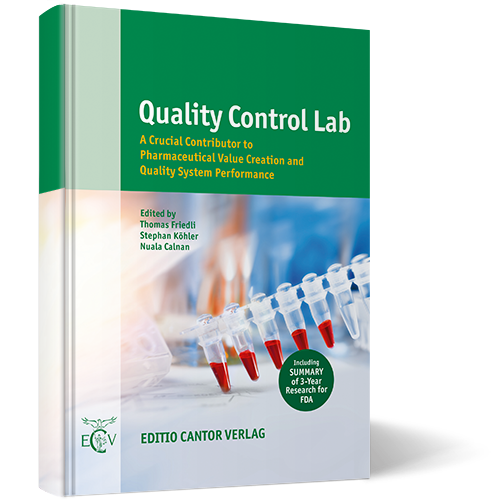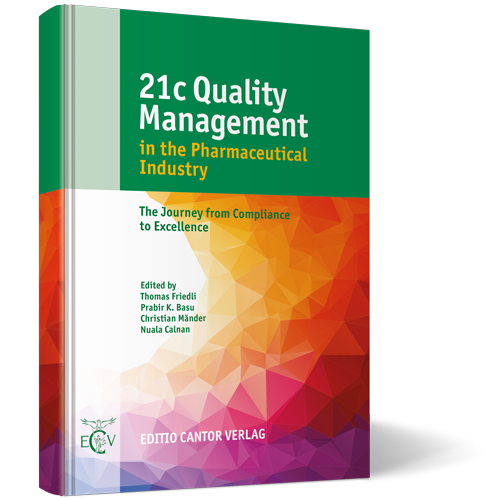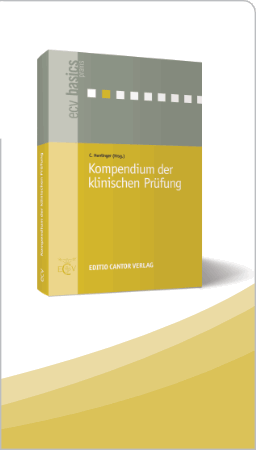Header
Ihr Suchergebnis
Sie recherchieren derzeit unangemeldet.Melden Sie sich an (Login) um den vollen Funktionsumfang der Datenbank nutzen zu können.
Sie suchen in allen Bereichen nach dem Autor Friedli T.
In der Rubrik Zeitschriften haben wir 6 Beiträge für Sie gefunden
-
Rethinking Manufacturing Quality in Pharma
Rubrik: GxP
(Treffer aus pharmind, Nr. 05, Seite 424 (2025))
Helbling J | Bernasconi M | Friedli T
Rethinking Manufacturing Quality in Pharma / Helbling et al. | Manufacturing Quality · Helbling J, Bernasconi M, Friedli T · Universität St.Gallen
Quality Leadership Risk Management Quality Metrics Quality Management Maturity Quality Culture Patients expect to have access to required drugs when needed. However, the SARS-CoV-2 pandemic has made it clear that drug availability is not guaranteed, and that supply chain disruptions and product shortages are a threat to public healthcare [ 1 ]. However, drug shortages are unfortunately not a new topic. Even before the pandemic, the U.S. Food and Drug Administration (FDA) investigated the root causes of the increasing number of drug shortages [ 2 ]. In particular, manufacturing quality issues contributed 62 % of drug shortages from 2013–2017 [ 3 ...
-
Quality of Pharmaceuticals and Outsourcing
Rubrik: Fachthemen
(Treffer aus pharmind, Nr. 05, Seite 572 (2022))
Quality of Pharmaceuticals and Outsourcing / Understanding the Inherent Risks to the Patient – Part 2*Part 1 of this article was published in Pharm. Ind. 84, no. 4, 449–460 (2022). · Basu P1, Friedli T2, Calnan N3 · Institut for Technology Management, University St. Gallen, 1Mount Prospect (USA) und BioPharm Excel, St.Gallen (Switzerland) und Dublin (Ireland)
Some examples/reasons why there is risk of lack of control when manufacturing is outsourced are as follows: Pharmaceutical companies are supposed to conduct on-site audit of their suppliers of drug substances. But data show that American and European pharmaceutical companies are misinformed about the identity of the manufacturing site of 39 % of the drug substances they purchase from China (Andre, 2011). Many pharmaceutical companies select excipients, ingredients, or drug substance suppliers by testing samples against the pharmacopoeia, without seeing the manufacturing conditions. Widely different levels of purity and control of raw materials. US/EU pharma companies often fail to let their ...
-
Quality of Pharmaceuticals and Outsourcing
Rubrik: Fachthemen
(Treffer aus pharmind, Nr. 04, Seite 449 (2022))
Quality of Pharmaceuticals and Outsourcing / Understanding the Inherent Risks to the Patient – Part 1 · Basu P1, Friedli T2, Calnan N3 · Institut for Technology Management, University St.Gallen, Mount Prospect (USA) und BioPharm Excel, St.Gallen (Switzerland) und Dublin (Ireland)
Pharmaceutical companies have traditionally preferred conducting R&D and drug manufacturing in-house. The main reason for that was that the pharma companies felt that if manufactured in-house, there would be better control of the quality of the product. In fact, some pharma companies, in support of their internal manufacturing competency, used to tout the concept “We make what we sell”. However, over the last couple of decades, pharma companies have increasingly outsourced product development and manufacturing functions to Contract Research Organizations (CRO) and Contract Manufacturing Organizations (CMO). In today’s challenging environment, aggressive cost control has become a common theme in the ...
-
Es gibt 3 weitere Treffer zu Ihrer Anfrage[ Alle Treffer dieser Rubrik anzeigen ]
In der Rubrik Bücher haben wir 2 Bücher für Sie gefunden
-
Quality Control Lab
(Treffer aus Büchern)
Ein Beitrag zur Wertschöpfung und Leistung des Qualitätssystems in der pharmazeutischen Industrie Von der Compliance zur Excellence – Wo steht Ihr Labor im Vergleich? Die ... -
21c Quality Management in the Pharmaceutical Industry
(Treffer aus Büchern)
The Journey from Compliance to Excellence Wie gelingt Qualitätssicherung und Operational Excellence im täglichen Pharmabusiness? Kenner der von Prof. Friedli herausgegeben Grundlagenwerke zur Operational Excellence lesen hier ...








